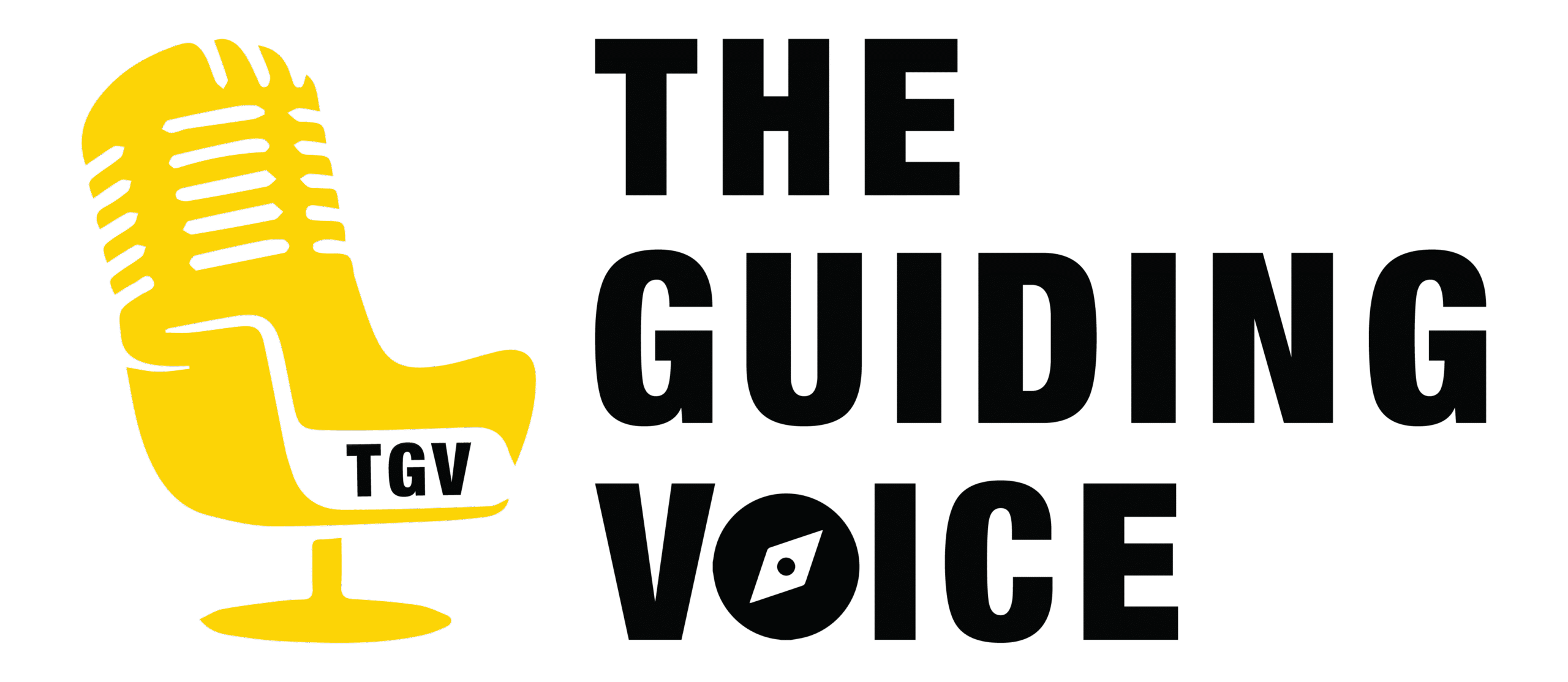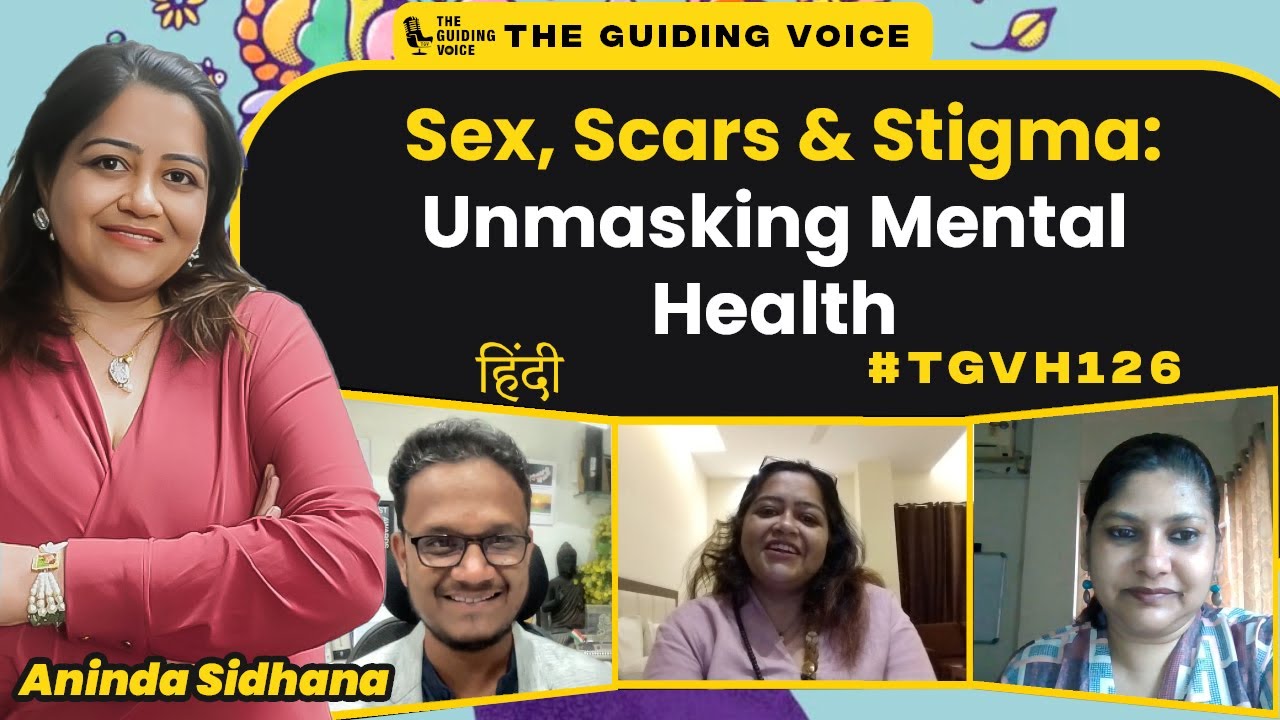“Khud se pyaar karo, apni zindagi ka steering wheel kisi ke haath mein mat do.”
(Love yourself, and don’t hand over the steering wheel of your life to anyone else.)
These powerful words set the tone for a candid, insightful, and much-needed conversation on gender equality, domestic violence, and the silence around sexual health in India. Hosted by Naveen Samala and Payal Mittal, this episode of TGV Hindi featured Dr. Aninda Sidhana—a psychiatrist and psychosexual medicine specialist—whose personal and professional journey brings deep authenticity to these challenging topics.
The Importance of Vulnerability and Seeking Help
Dr. Sidhana opens the conversation by emphasising that vulnerability is not a weakness, but a sign of strength. “Vulnerability, strength, aur help lene ke liye aaj kal bahut online platforms hain. Please seek help!”
She points out that societal expectations—especially in intimate relationships—often prevent both men and women from expressing their true feelings or asking for support. In India, every relationship carries its own set of expectations, but trouble arises when we expect everything from just one person (be it husband, wife, or partner).
Why This Conversation Matters
Dr. Sidhana’s expertise lies in areas that are often considered taboo—mental health and sexual health. She notes, “Mental health ke baare mein koi baat nahi karta, aur sex ki problems ke baare mein toh koi bhi nahi karta.”
By breaking the silence, especially as a female psychiatrist, she hopes to inspire others to speak up, seek help, and support each other.
The Roots of Gender-Based Violence
Reflecting on her own life, Dr. Sidhana shares that it was her difficult marriages and witnessing gender-based violence that brought her to advocacy. She firmly believes, “Jab tak aadmi saath nahi aayega, auratein akeli chillane ka koi fayda nahi.”
True gender equality, she insists, can only happen when men are also empowered to express pain and vulnerability, and when both genders support each other.
Dr. Sidhana also highlights the dangerous “raja beta syndrome”—the notion that sons are always right and above criticism, often perpetuated by mothers and families. This mindset, she argues, fosters entitlement, excuses poor behaviour, and contributes to cycles of domestic violence.
The Impact of Domestic Violence and the Silence Around Sexual Identity
Gender-based violence doesn’t just hurt individuals—it erodes trust, isolates victims, and makes it difficult for them to form healthy relationships in the future. Dr. Sidhana stresses that healing is essential before entering a new relationship:
“You can’t get into a new relationship before you heal yourself, or you’ll take out your anger and pain on people who never hurt you.”
She also draws attention to the lack of data and discussion around sexual violence, particularly for men, who are often silent about their suffering due to societal shame.
Communication: The Key to Healthy Relationships
One of Dr. Sidhana’s most actionable insights is the importance of honest communication in relationships—especially about intimacy and sexual needs.
“Communication is the key to every relationship,” she says. “Jab tak aap baat nahi karoge, problems suljh nahi sakti. Even men feel pain, and they should be encouraged to talk about it without shame.”
She encourages couples to keep the romance alive and treat each other with the same affection and attention as they did before marriage.
Busting Myths: Sexual Health and Societal Taboos
Dr. Sidhana addresses prevalent myths that can cause unnecessary anxiety and depression, especially among young men:
- Myth: Size matters.
Reality: Connection and understanding matter more. - Myth: Masturbation causes weakness.
Reality: It is a normal part of human sexuality and does not cause harm.
The silence and stigma around sexual health issues have severe consequences—including sexless marriages, extra-marital affairs, and untreated psychological distress.
The Need for Support Systems and Accessible Help
Dr. Sidhana is a strong proponent of using online platforms for anonymous counselling and support, such as Ello Health and Telemanas.
She urges, “Help maangna weakness nahi hai. It is your biggest strength.” Whether you’re a man or woman, never hesitate to seek help—talk to a professional, or at least confide in a close friend.
Dr. Sidhana’s Mantra: Love Yourself and Hold Your Own Steering Wheel
In her own life, Dr. Sidhana credits her success and resilience to three key pillars:
- The unwavering support of family and friends.
- Her professional fellowship and community.
- The life lessons she learned from surviving—and thriving after—her failed marriages.
She remains grateful for her journey and the support that helped her turn struggles into strength.
Final Words: You Are Not Alone
The episode closes with a heartfelt reminder from Dr. Sidhana:
“You are not alone. Agar aapko mental ya sexual health se judi koi bhi problem ho, please talk to someone—friend, counsellor, or doctor. Problems are like any other illness, and there’s no shame in seeking help.”

